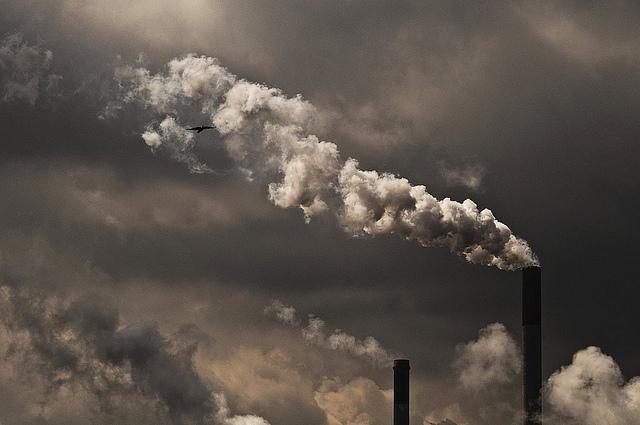
Editor’s note: As governments and other global stakeholders work to refine their talking points and targets in advance of the COP21 meetings in Paris, The Strategist today launches a series that will consider a wide range of policy issues related to climate change and international security. While the intersection of climate and defence planning will naturally be a focus, climate change is a strategic policy consideration at its core. So this series is also a prime opportunity to examine topics as diverse as food security, energy, climate economics and mass climate migration, among others. As always, we look forward to receiving comment and contributions from our readership as the collection unfolds over the coming months.
Australia’s defence force is lagging significantly behind its US and UK counterparts in preparing to deal with the challenges created by a changing climate.
This is a key finding of the recent report ‘Be Prepared: Climate Change, Security and Australia’s Defence Force’, published by the Climate Council. In the wake of the report the Council last week convened Australia’s first climate security summit in Canberra, which brought together leading experts to explore the significant and growing security challenges presented by a changing climate.
While the current position may appear alarming, it can’t be interpreted as meaning that the ADF has done nothing about climate change planning. The ADF has been looking at the impacts of climate change since 2007, and its record in environmental management, planning and acting to preserve our environment has been good, with few exceptions.
In recent years, however, as Australia’s climate change credentials have suffered from a lack of political leadership, our key allies and partners have taken a different pathway. They have overtaken us comprehensively, including climate change priorities in national security assessments and integrating climate change impacts fully into their defence planning.
Military forces around the globe perceive climate change as a threat multiplier because its impacts can undermine individual and societal well-being. Climate change will affect the availability of food, water and energy which become basic insecurities, as well as fostering migratory movements forced on people by sea level rise and the greater frequency and intensity of extreme weather events. These pressures have the potential to lead to conflict.
At present, the international community is preparing for the COP21 climate talks in Paris which will set the action agenda for coming decades. In the lead up to the Paris talks Australia should be providing the kind of regional leadership that we have in the past.
Our regional leadership and presence—important matters for the ADF—have been overtaken by the highly proactive NZDF and the US Pacific Command in Hawaii who have been ordered directly by the American government to establish clear leadership in the region on climate change matters.
My colleagues and I who prepared the report are convinced that the science behind climate change is so compelling that urgent action needs to be taken now to head off the worst of the predicted consequences, but also to build the capabilities and capacity needed to deal with changes in our strategic situation and environment, here in Australia and in our region.
There is growing concern that the seriousness of the present position will mean much more dramatic action needs to be taken to ensure human security over the next 100 years. So, notwithstanding anything the defence force may need to do now, there must be action taken by all governments and the global population to reduce greenhouse gas emissions and embark on comprehensive adaptation initiatives.
NASA, NOAA, the IPCC and a long list of other trusted organisations have confirmed that the yearly global average temperature continues to climb; 14 of the hottest 15 years have occurred this century. Globally July 2015 was the warmest month since records began, and 2015 is on track to be the hottest year globally on record. Consequences are being felt all over the globe. From late April to early August in Japan, 35,000 people have been hospitalised due to hot weather and more than 1,000 people died in India and Pakistan during heatwaves.
Apart from warning us about ‘boiling the oceans’ and the dire consequences of a great deal of generated heat being absorbed into the seas, a recent article in The Economist has drawn on analysis that suggests even if all countries fully honour their recent pledges on greenhouse gas reductions at COP21 temperatures may still rise by 2.7⁰C by 2100.
This is well over what governments around the world have agreed to, which is to keep a rise in global temperature to no more than 2°C above pre-industrial levels. Without drastic action we are advised that we are heading into completely unexplored territory. A 2°C rise in global temperature will have serious impacts on the lives and livelihoods of many people worldwide, and could trigger major changes in the Earth System. For instance, a 2°C rise could trigger the melting of the Greenland ice-sheet, which would eventually raise sea level by about 7 metres, inundating major cities worldwide. Complicating matters further, global population is predicted to rise by more than 25% over the rest of the century.
On 29 September Mark Carney, the governor of the Bank of England, warned that though measures to avoid catastrophic climate change are essential, not least for long-term financial stability, in the shorter term they could cause investors huge losses by making reserves of oil, coal and gas ‘literally unburnable’. The Climate Council’s Unburnable Carbon report released earlier this year found that to have a 75% chance of meeting the 2°C warming limit, at least 77% of the world’s fossil fuels cannot be burned.
In a second post I will examine the capability risks and the geostrategic risks that climate change presents for the ADF.